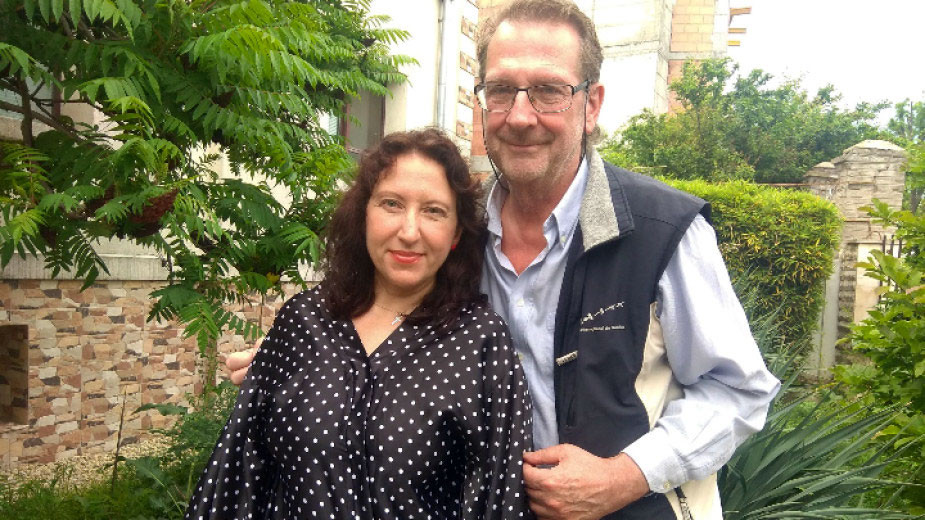When spring comes it comes with the delicate petals of saffron, and by autumn it has become a product whose weight is worth more than gold. Saffron is “the spice of life” for the family of artist Katya Ivanova. She is from Kyustendil in Southwestern Bulgaria, but life’s pathways first took her to Switzerland, and then back to her country together with her Swiss-born husband Charles Ernest Beer, a marketing specialist. Here the two decided to try and make their dream come true, a dream that may look simple because what they wanted to do is grow saffron. After doing their research into what opportunities there are to grow in Bulgaria, the Beers bought property close to the Black Sea, in a village near Nessebar called Tunkovo.
“They say that in antiquity saffron came from Greece, passed through Bulgaria to spread to practically all points on the planet” says Charles Beer in a bid to explain the choice he made, and goes on:
“But people saw that growing saffron is really hard work, they couldn’t take it and so abandoned it.”

On the fourth year the family’s harvest reached over one kilogram of saffron, dry weight. “That was when we reached the point of having more than one million bulbs, which is over 3 million blossoms,” Katya Ivanova-Beer says and adds:
“It was getting too much for us so we cut the area we had planted by half. And the reason is the growing market competition – it is getting increasingly difficult to sell our entire produce. We are not 20 anymore, it is grueling work to have to start work in the field at 5 in the morning. It is really hard work. Especially during the two months of autumn when the blossoms are picked, and during spring - weeding time before the saffron blooms. There is really strong competition on the international market.
In Iran – the biggest producer – tons of saffron are grown which undercuts prices even though it is of lower quality. In Europe the quality of saffron is higher and it is much more expensive than the saffron from Iran. Every year it gets more and more difficult to support ourselves with our saffron crop, new producers are constantly cropping up on the market.”
This year the Beers expect a harvest of about 800 grams. They are proud that they grow saffron without synthetic fertilizers or any plant protection products. They say that they definitely meet organic production requirements though they do not have any such certificate.
“There are all kinds of requirements for these bio certificates that are difficult to meet. By European standards organic production is a difficult thing, and it is not a question of money. I have sold produce at the farmers’ market in Varna and I have heard colleagues complaining. Organic farming is no easy thing – you have to put your heart into it! But does anyone appreciate that, no – neither the people who buy nor the state.”
Interviews by Petya Yanakieva, BNR-Burgas
Editing by Gergana Mancheva
Photos: BNR-BurgasJoining the Eurozone later in 2025 is a possible scenario, and at this stage, it is a more likely one, Bulgarian National Bank Governor Dimitar Radev said for BTA in Washington during the Spring Meetings of the World Bank Group and the International..
She is beautiful, young and educated and has the qualities for a successful career on the catwalk or in the advertising business! But she chose to raise buffaloes in a Bulgarian village. Tsvetelina Nedkova graduated with honors from..
Progressive income taxation allows a country's resources to be shared more successfully with society. The 10% flat tax has played its role in shedding light on incomes, but it's time to replace it, Kristalina Georgieva, managing..
Joining the Eurozone later in 2025 is a possible scenario, and at this stage, it is a more likely one, Bulgarian National Bank Governor Dimitar Radev..

+359 2 9336 661
